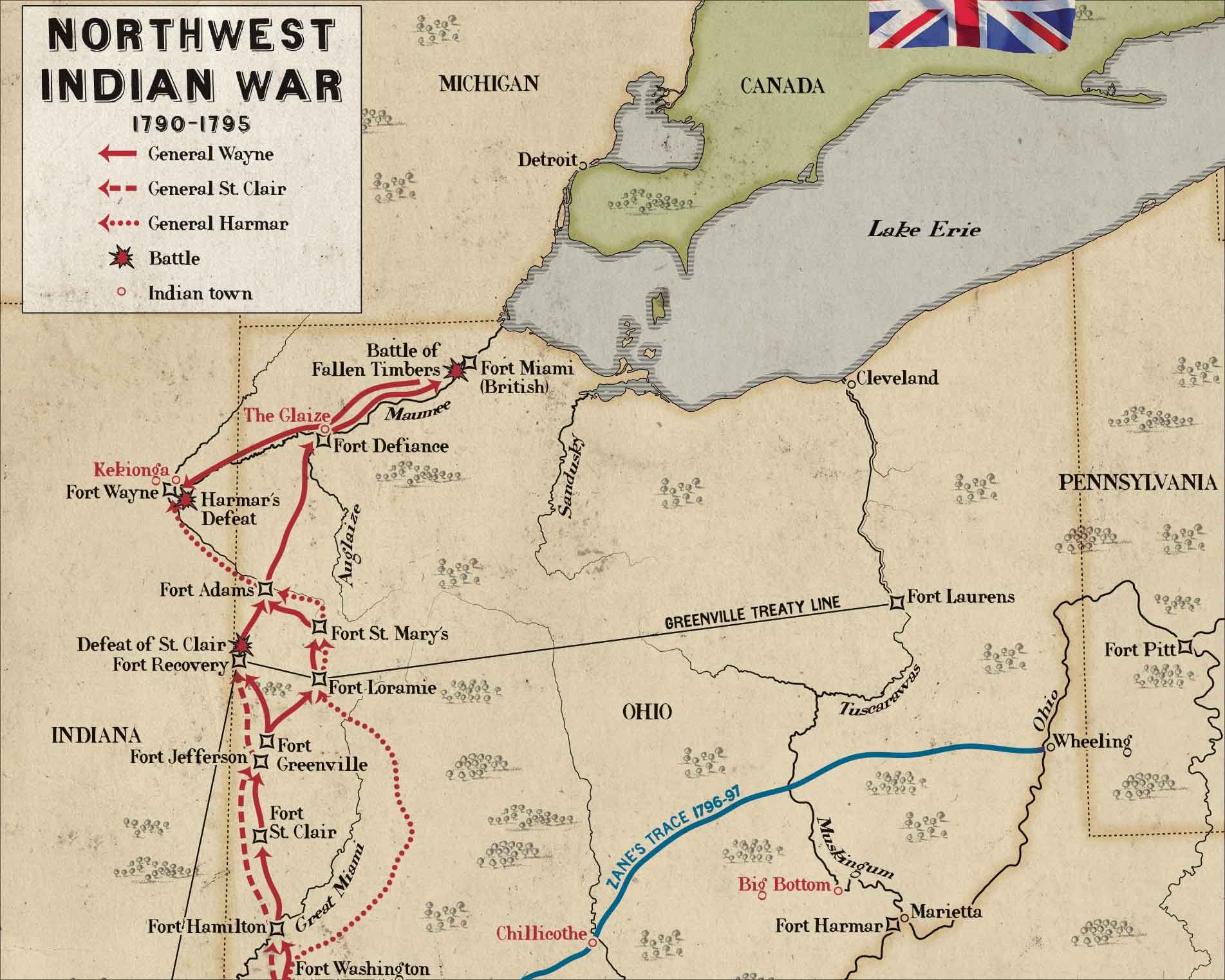St. Clair’s Debacle on the Wabash
Following General Josiah Harmar’s defeat in October 1790, Congress expanded the army and President George Washington appointed Arthur St. Clair, governor of the Northwest Territory, to command the new force. In September 1791, St. Clair began his march north from Fort Washington with 1,500 poorly trained and under equipped men. Despite several soldiers being killed and numerous horses stolen, St. Clair did not believe any large Indian force was nearby. Disregarding these warning signs, he did not post any picket lines that night nor did he have the men fortify their positions. At dawn on November 4, 1,000 warriors, led by Little Turtle and Blue Jacket, launched a surprise attack on the American camp.
Tom Hand, creator and publisher of Americana Corner, discusses how St. Clair’s decisions would lead to the worst defeat an American army would suffer at the hands of a Native American force, and why it still matters today.
Images courtesy of University of Michigan Library, National Gallery of Art, The New York Public Library, National Portrait Gallery - Smithsonian Institution, Library of Congress, The Metropolitan Museum of Art, Wikipedia.


The American army commanded by General Josiah Harmar had been badly mauled by the Northwestern Confederacy in the autumn of 1790. Anxious to demonstrate the will and ability to gain control of the Ohio Country, the following March, Congress expanded the army to two regiments and President George Washington appointed Arthur St. Clair, the Governor of the Northwest Territory, to command the new force.